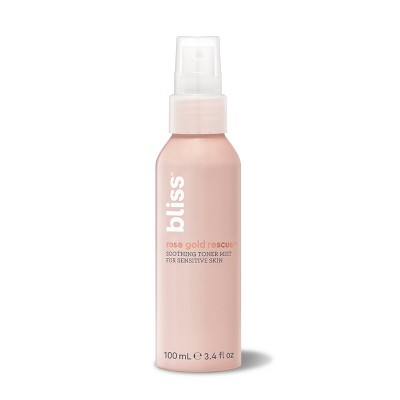PRODUCT REVIEW

Benton Let's Carrot Oil Toner
Can it cause trouble?
Cheaper alternatives
Product summary
What can the product work for?
Anti-aging
What does the product description say?
Tocopherol, a form of vitamin E, has anti-inflammatory benefits and helps minimize appearance of wrinkles and scars.
Moisturizing
What does the product description say?
The two-layered toner with oil and water helps prevent the skin from moisture lost by forming a oil-moisture barrier to the skin.
Anti-oxidation
Evens skin tone
What does the product description say?
Tocopherol, a form of vitamin E, has anti-inflammatory benefits and helps minimize appearance of wrinkles and scars.
Honesty check
How honest is this product?
| Promise | Can it deliver? |
|---|---|
| Anti-aging | |
| Moisturizing | |
| Evens skin tone |
Buy now
We receive a small commission for purchases made through these links at no cost for you. Thank you for your support! Learn more
 US Retailers
US Retailers
 AU Retailers
AU Retailers
 UK Retailers
UK Retailers
Can it cause trouble?
- Overall product irritation risk
- Acne & comedogenic risk ingredients: 0
Potential irritants
Comodogenic ingredients
Similar products & dupes
 Benton - Let's Carrot Oil Toner |  JPS LABO - Unlabel Lab Ceramide Essence |  Hada labo - SHIROJYUN PREMIUM WHITENING LOTION TONER |  Bliss - Rose Gold Rescue Soothing Toner Mist For Sensitive Skin |  jane iredale - BeautyPrep Face Toner |  Bring green - Carrot Vita Toner Pad |  Rohto Mentholatum - Melano CC Vitamin C Essence 2021 Edition |  Skinfood - Carrot Carotene Soothing Toner |  Kerstin Florian - Rehydrating Capilar Essence | |
| Price | |||||||||
| WIMJ similarity score |
27%
|
26%
|
24%
|
23%
|
22%
|
21%
|
21%
|
19%
| |
| Key ingredients | Common: Other:
| Common:
Other:
| Common:
Other: | Common: Other: | Common: Other:
| Common: Other: | Common: Other: | Common: Other: | |
| Irritancy | IRRITANCY
HIGH
| IRRITANCY
LOW
| IRRITANCY
LOW
| IRRITANCY
HIGH
| IRRITANCY
HIGH
| IRRITANCY
HIGH
| IRRITANCY
HIGH
| IRRITANCY
HIGH
| IRRITANCY
HIGH
|
| Potential Irritants |
|
|
|
|
|
|
|
|
|
| All ingredients |
|
|
|
|
|
|
|
|
|
Ingredients & concentrations
All ingredients
Key Actives
Potential irritants
Comodogenic ingredients
All ingredients
Ingredient list view
Daucus carota sativa root water, Daucus carota sativa seed oil, Daucus carota sativa root extract, Beta-carotene, Tocopherol, Water, Coco-caprylate/caprate, Daucus carota sativa root water, Glycerin, Helianthus annuus seed oil, Caprylic/capric triglyceride, 1,2-hexanediol, Magnesium sulfate, Pentylene glycol, Glyceryl caprylate, Canola oil, Vitis vinifera seed oil, Persea gratissima oil, Propanediol, Olea europaea fruit oil, Sodium gluconate, Polyglyceryl-10 laurate, Dipotassium glycyrrhizate, Olea europaea husk oil, Polyglyceryl-10 myristate, Allantoin, Ethylhexylglycerin, Santalum album oil, Daucus carota sativa seed oil, Vegetable oil, Melaleuca alternifolia leaf oil, Daucus carota sativa root extract, Chrysanthemum morifolium flower extract, Rosa centifolia flower extract, Lavandula angustifolia extract, Tocopheryl acetate, Beta-carotene, Mentha piperita oil, Tocopherol
Sources
- New Claims for Wild Carrot (Daucus carota subsp. carota) Essential Oil
- Vitamin E in dermatology
- Vitamin E and Skin Health
- Safety Assessment of Alkyl Esters as Used in Cosmetics
- Glycerol and the skin: holistic approach to its origin and functions
- Effect of Olive and Sunflower Seed Oil on the Adult Skin Barrier: Implications for Neonatal Skin Care
- Topically Applied Sunflower Seed Oil Prevents Invasive Bacterial Infections in Preterm Infants in Egypt
- Effect of topically applied lipids on surfactant-irritated skin
- Impact of topical oils on the skin barrier: possible implications for neonatal health in developing countries
- The influence of alkane chain length on the skin irritation potential of 1,2-alkanediols
- Safety Assessment of Magnesium Sulfate as Used in Cosmetics
- Canola Oil
- Use of “natural” oils for moisturization: Review of olive, coconut, and sunflower seed oil
- In Vitro Assessment of Skin Irritation Potential of Surfactant-based Formulations by Using a 3-D Skin Reconstructed Tissue Model and Cytokine Response
- Ameliorating effect of dipotassium glycyrrhizinate on an IL-4- and IL-13-induced atopic dermatitis-like skin-equivalent model
- Final report on the safety assessment of Glycyrrhetinic Acid, Potassium Glycyrrhetinate, Disodium Succinoyl Glycyrrhetinate, Glyceryl Glycyrrhetinate, Glycyrrhetinyl Stearate, Stearyl Glycyrrhetinate, Glycyrrhizic Acid, Ammonium Glycyrrhizate, Dipotassium Glycyrrhizate, Disodium Glycyrrhizate, Trisodium Glycyrrhizate, Methyl Glycyrrhizate, and Potassium Glycyrrhizinate.
- Profile of wound healing process induced by allantoin
- https://www.ncbi.nlm.nih.gov/pmc/articles/PMC6272594/
